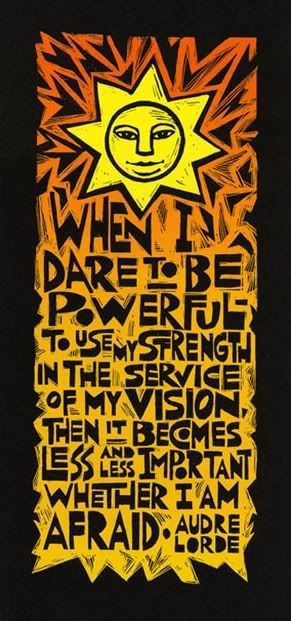Its frustrating being excited about reading material, especially when it is new to you and you wanna make sure you get it to the fullest, and your learning institution doesn't care to give their students the time to really soak it up since we're living in a microwave society (everything is instant, express, no time for marinating..). Well if you're caught up and needing to get through, here are some tips I got from an IRT staff member:
Read the conclusion FIRST: gives you an overview of what you will read. Makes it easier for you skim through the details since you are able to spot them as "supporting evidence" and not so much the "meat" of the piece.
What to skim: Skimming sux, you're scared of missing something, but you got to get this done befo da sun rises! If the text name drops thinkers, describes ideas, events you already know, skim through the passage and look for how this already known info is being pluged into this reading.
What to skip: Yea, skip! I know this sounds like suicide if you are all about takin it all in! Skip over paragraphs you aren't quite getting and mark them with questions. Come back to them by the time you get to the end of the article/text. Ideas and terms may be explained later in the text.
Write out questions: If you're a dedicated close reader, you're prob already takin notes on the side margines and "talking to" your text. Make sure you write down questions as well, for reasons listed above. If there is time and support, share your questions with a study group or classmate, or bring them up in class.
Timing: Set a time limit for each article/text if you've got a billion to get through for the night. This should force you to not marinate on the work too much, esp if you are new to this speed reading business. Adjust your time if you are writing papers, working on major projects, ect.
Prioritize: If there is a text it is essential for you to really know (for your research, the focus of a class, ect.) you can plan a little more time for that one. "You mean everything is not important?" Nope, sometimes you will have texts assigned soley for the purpose of supporting ideas, concepts, or evidence for a major text. Also, for those extra dense texts with all the thick language, you need to plan more time for those too. If you are reading for multiple classes, and each class has multiple texts per meeting, try to do a closer reading of one text per class to make sure you have something to contribute to each class.
My own personal tip: There is NOTHING wrong with bein a slow reader! I think we tend to reference alot of prior knowledge, experience, and wisedom when we are dedicated to understanding a new idea or looking at new perspectives. Yea, we tend to really interact with the text and bring ourselves into it. I hope I never loose this ability as I start to practice these speed reading skills. So.. when I'm out of here, I'm reading a book of choice and reading it at MY loveley pace. Make sure you don't forget how to really become involved with text. Its a beautiful thing!
Monday, July 10, 2006
Subscribe to:
Post Comments (Atom)




1 comment:
girl, i will be grateful for this forever. you know that i'm one of those 'close readers' who has to relate to every word i read and apply it to my real life; and of course apply my life experiences to the text i'm reading to see how it compares, differs, works out, etc. like, i always have to lift up my glance off the text, even close my eyes and think/digest what i just read, visualize, smell it, and so forth...
i agree with you 100% that it is a beautiful thing to take all reading so personally and close to heart, because i don't even think i've truly read something until i've as if felt or experienced the words in my very soul. anyhow, like you, i'd often get frustrated when i'm behind on my readings or when i tend to finish later than others, so these tips are going OH SO HELPFUL. really.
i've started practicing them already this week. it works.
but in casual reading i also intend to keep getting 'in personal contact' with the text. there's nothing more enjoyable than that. i like how you said, "we tend to really interact with the text and bring ourselves into it."--i couldn't agree more.
thank you for taking your time to share these precious skills, tigera!
Post a Comment